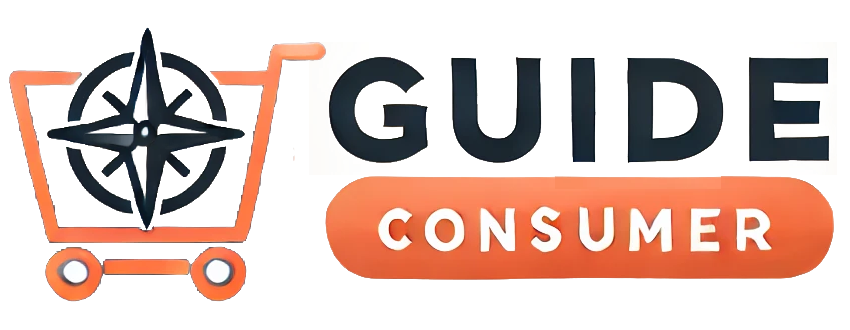Deciding whether to pay off your mortgage early or invest your extra money is a common dilemma many homeowners face. Both options have compelling advantages and potential drawbacks, and the best choice depends on individual circumstances and financial goals.
Understanding the Basics
A mortgage is typically the largest debt most individuals incur, involving a long-term commitment to monthly payments, often over 15 to 30 years. While mortgages generally come with low-interest rates, the consistent payments can feel burdensome, leading many homeowners to consider paying it off early. On the other hand, investing offers the potential for higher returns, which could significantly increase your wealth over time.
The Case for Paying Off Your Mortgage Early
Paying off your mortgage early can bring several benefits and provide a sense of financial security.
Financial Freedom: Eliminating your monthly mortgage payments can free up a considerable portion of your budget, allowing you to allocate money for other financial goals or investments. Without the burden of a mortgage, you might also choose to pursue different career opportunities or lifestyle changes with greater flexibility.
Interest Savings: By paying down your mortgage principal faster, you can substantially reduce the amount of interest paid over the life of the loan. Even small additional payments can make a big difference in the total interest, particularly in the early years when interest comprises most of the monthly payments.
Risk Reduction: Without a mortgage, you're less susceptible to financial instability caused by unexpected life events like job loss or health issues. The peace of mind that comes with owning your home outright is invaluable to many, and removing this major debt can improve your overall financial resilience.
Psychological Benefits: There's an emotional comfort that comes with owning your home outright. It can increase your sense of security, reduce stress, and make retirement planning easier.
No Market Dependency: Paying off your mortgage is a guaranteed return equal to your loan’s interest rate. Unlike investments, this approach isn’t subject to market volatility, offering a sense of certainty as you approach your financial milestones.
Potential Downsides of Paying Off Your Mortgage Early
While there are significant benefits to paying off your mortgage early, there are also considerations that might make other financial strategies more appealing.
Opportunity Cost: By directing extra funds to your mortgage, you might miss out on the higher returns typically offered by the stock market. Historically, the annual rate of return on stocks has been higher than the interest rate on mortgages, suggesting that investing could potentially yield more significant growth over time.
Liquidity Issues: Money tied up in your home is not easily accessible. In emergencies, it can take time and effort to access equity, usually involving loans or selling the property, which isn’t always feasible or desirable.
Tax Considerations: In regions where mortgage interest is tax-deductible, you could lose a valuable deduction by paying off your mortgage early. This deduction decreases the effective interest rate, making it cheaper to hold the mortgage. Ensure to consult a tax professional to understand how this might impact your personal financial situation.
The Case for Investing
Many financial advisors suggest that investing can be a more lucrative strategy over the long term, primarily due to the potential for higher returns.
Compound Growth: Investments in stocks, mutual funds, or retirement accounts benefit from compound returns. The growth on these investments can be substantial, especially over long periods, due to the reinvestment of earnings.
Diversification: Investing allows you to diversify your assets, distributing risk across various securities, industries, and geographical regions. This strategy can shield your wealth from local economic downturns or specific asset class crashes, like housing.
Flexible Financial Planning: Investing provides greater liquidity compared to real estate. Should you need cash, it is generally easier to sell some investments rather than accessing home equity.
Retirement Accounts and Employer Contributions: Contributions to retirement accounts or taking advantage of employer-sponsored plans like a 401(k) often result in tax advantages, matching contributions, or both, providing immediate returns that outweigh mortgage interest rates.
Beating Inflation: Investment returns often outpace inflation, preserving your buying power over time. This makes investing a particularly appealing option in times of high inflation, where sticking purely to debt repayment might reduce your financial strength in real terms.
Risks and Challenges of Investing
Investing is not without its risks and requires careful consideration, particularly in uncertain economic climates.
Market Volatility: Unlike the guaranteed savings from mortgage interest, investment returns are never certain. Markets are unpredictable, and downturns can diminish the value of your portfolio, particularly in the short term.
Behavioral Biases: Emotional decisions in investment markets can lead to buying high out of enthusiasm and selling low out of fear. Professional guidance and a disciplined approach are essential to counteract these tendencies.
Time Commitment: Successful investing often requires significant time and effort, from researching options to tracking the performance of your portfolio. It's critical to continually educate yourself and potentially seek professional advice to optimize your investment strategy.
Striking a Balance
Deciding between paying off your mortgage and investing isn't strictly binary. Depending on your circumstances, a balanced approach might be advantageous, where you allocate resources to both strategies.
- Define Your Goals: Establish clear financial and personal objectives to guide your decision-making process. Whether it’s early retirement, purchasing additional real estate, or ensuring a legacy for your children, having defined goals will clarify your strategy.
- Consider Current Debt Levels: If you carry high-interest debt, like credit cards, prioritize paying that off before considering mortgage prepayments or additional investments.
- Evaluate Interest Rates: Analyze the interest rates on your mortgage compared to potential investment returns and any existing liabilities. This analysis will provide insight into the opportunity cost of each dollar spent.
- Emergency Fund: Ensure you maintain an adequate emergency fund, typically covering 3-6 months of living expenses, before implementing either strategy.
- Seek Professional Advice: A financial advisor can provide personalized advice, helping to tailor a strategy that addresses both immediate needs and long-term goals.
It's also crucial to reassess your situation regularly and adjust your strategy as your financial situation, lifestyle, and goals evolve. Whether you lean towards paying down your mortgage or embracing the potential growth of investments, both are valuable steps towards securing financial freedom. The key lies in understanding your risk tolerance, timeline, and personal financial goals, setting a clear path towards a financially secure future.


